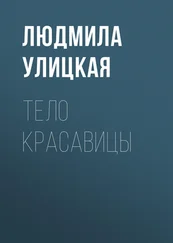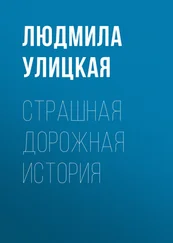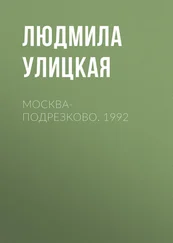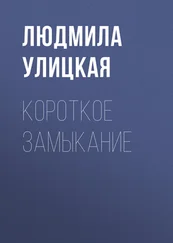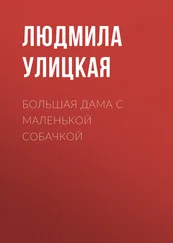Mr. Schwartz was not, however, on holiday. Indeed, he came to the conference specifically to ask the American a particular specialized question. A five-minute conversation ensued during which the quick-witted American (not for nothing had his grandfather been born in Odessa) soon saw how the land lay, took Alik’s home telephone number, and late that evening came to visit him, paying the taxi-driver, who was also quick-witted in his way, a sum equivalent to Alik’s monthly salary.
All this had occurred in Masha’s absence. Debora Lvovna, Alik’s mother, was on holiday at a sanatorium. Mountains of unwashed dishes and piles of open books finally convinced the American that he was dealing with a genius, and he lost no time in making him an offer to come and work for him. In Boston, at the Massachusetts Institute of Technology. That raised one technical but not insignificant problem: emigration. This was the development that Alik was bringing to his wife. Both of them were bursting to tell the other their news.
The topic of emigration was one of the most contentious among the intelligentsia in those years: to be or not to be, to go or not to go. “Yes, but supposing . . .” “No, but what if . . . ?” Families were split, friendships sundered. Political motivations, economic, ideological, moral . . . And the actual business of getting out was so complex and agonizing, sometimes taking long years, demanding resoluteness, courage, or desperation. The official gap in the Iron Curtain was only open for Jews, although non-Jews used it too. This time it was the Black Sea that divided its waters to allow the Chosen People through, if not to the Promised Land then at least out of the latest Land of Egypt.
“It says in Exodus,” exclaimed Lyova Gottlieb, a close friend whom Alik called “the Principal Jew of the Soviet Union,” “that Moses led six hundred thousand men on foot out of Egypt, but nowhere is it said how many remained behind. Those who stayed simply ceased to exist. And those who didn’t leave Germany in 1933? Where are they?”
Alik was completely uninterested in his own life from a Jewish viewpoint: for him what mattered most was the advancing of science. Needless to say, he heard all these conversations taking place, and even took part in them himself, introducing a theoretical and unemotional perspective, but all that really concerned him was cellular aging.
What the American offer meant to him was that he would be able to work more effectively. “By about three hundred percent,” he estimated when telling Masha all about it. “The best equipment in the world, no problems with reagents, laboratory assistants to help me, and absolutely no material problems for you and me. And Alik can study at Harvard, eh? I am entirely ready for this. It’s up to you, Masha. Well, and Mother too, of course, but I can talk her around.”
“But when?” was all Masha could ask, entirely unready for events to take this turn.
“If there are no hitches, then in six months’ time, if we submit our documents straightaway. But it could drag on for a long time: that’s what I’m most worried about, because I’ll have to leave work immediately in order not to land my boss in trouble.” He had already thought everything through.
“Two weeks ago a proposal like this would have delighted me,” Masha thought. “But today I can’t bear to think about it.”
Alik had been hoping in the depths of his heart that Masha would be gladdened by the prospects this opened up, and he was puzzled by her hesitancy now. He didn’t yet know that their home life, so logical and well thought out, had cracked right from its crystal top down to its much despised bottom. Masha had not yet fully realized it herself.
Then Masha read Alik her recent poems, and he praised her and noted their new quality. He received Masha’s ardent confession about the revelation she had received in a new and intense relationship, about a special kind of perfection she had found in a different person, about a new experience in her life, as if a dulling film had been lifted from the whole world: from landscapes, from faces, from ordinary feelings.
“I don’t know what I should do with all this now,” Masha complained to her husband. “Perhaps from the generally accepted point of view [‘bourgeois’ wasn’t a word she ever used] it is terrible that it should be you I am telling this to, but I trust you so much. You are the person closest to me, and it only makes any sense at all to talk about this to you. You and I are one, as far as that is possible, but all the same I don’t know how we are to go on living. You say we should emigrate. Perhaps we should.”
She was slightly shivery, her face burning and her pupils dilated.
“Bad timing,” Alik decided, and brought half a bottle of brandy out of the kitchen. He poured two glasses and concluded magnanimously: “Well, let’s face it, this experience is indispensable for you. You are a poet, and in the last analysis, is this not the material that poetry is made from? Now you know there are higher forms of fidelity than sexual. I already knew that. You and I are both researchers, Masha. It’s just we have different areas. At the moment you are making a discovery of your own, and I can understand that. And I won’t stand in your way.” He poured them each another glass.
Brandy was the right prescription. Masha soon buried her face in his shoulder and murmured: “Alik, you are the best person in the world. You are my fortress. If you want, let’s go anywhere you like.”
They comforted themselves in each other’s arms, and reassured themselves of their eliteness, and confirmed to themselves their superiority over other family couples of their acquaintance who might indulge in all sorts of petty mischief, transient couplings in a locked bathroom, and have all sorts of piffling lies and baseness in their lives whereas they, Masha and Alik, were totally open and lived a life of purest truth.
Three days later Alik went back, leaving Masha with the children, the washing, and her poetry. She would be spending another month and a half in the Crimea, because Alik had brought her the money needed for that.
Two days after he left, Masha wrote her first letter. To Butonov. And followed it up with a second and a third. In the intervals between writing letters, she wrote short, desperate poems which she herself liked very much.
Butonov conscientiously collected her letters from the mailbox. He had given Masha his Rastorguevo address only because during the summer, when his wife and daughter went to stay at the university-owned dacha of Olga’s friend, he usually stayed in Rastorguevo rather than in his wife’s apartment in Khamovniki. Butonov never worried about keeping secrets from his wife: Olga wasn’t nosy and would never have dreamed of opening someone else’s letters.
Masha’s letters surprised him greatly. They were written in tiny handwriting which sloped backward, and had drawings in the margins and stories from her childhood which had absolutely no bearing on anything; and for some reason they contained references to writers he’d never heard of, and a lot of hints that were quite unclear. In addition, the envelopes contained separate sheets of rough grey paper with poems. Butonov guessed she had written them herself. He showed one of the poems to Ivanov, who knew about that sort of thing. Ivanov read it aloud with a strange expression:
“Though love is of the soul, the body hale
has at this feast its own allotted ration.
You put your hand in his in joyous fashion:
the warmth that makes your spirit quail,
the blazing heat of carnal passion
are measured on a single scale.”
“Where did you get this, Valerii?” Ivanov asked in astonishment.
Читать дальше

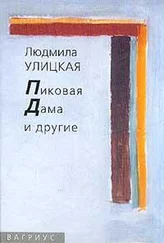
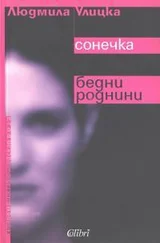

![Людмила Улицкая - Сквозная линия [litres]](/books/393468/lyudmila-ulickaya-skvoznaya-liniya-litres-thumb.webp)
